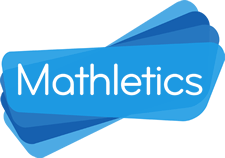Mathematics
Within the Pegasus Academy Trust, we follow the National Curriculum and The Early Years Foundation Stage Curriculum for mathematics and teach maths daily.
INTENT
At Pegasus, we believe that all children can achieve in maths. Pupils in our Trust progressively build upon each mathematical concept throughout their primary education; they become increasingly fluent with the necessary skills and vocabulary that are applied to reasoning and problem solving in a variety of contexts.
Maths is taught using a ‘Maths Mastery’ approach – breaking learning down into microscopic steps within each unit. Although we use and refer to mathematical schemes of work, we have developed our own Maths Mastery scheme of work that reflects the needs of our pupils. This is supported with the concrete, pictorial and abstract approach and enriched by the use of mathematical resources.
In addition to this, the Trust has developed its own calculation policy, which includes instructional videos on our website. Using tried and tested methods of calculation, children increase their fluency and confidence in the four operations from Key Stage One onwards. The Trust further endeavours to maintain the high profile of mathematics through:
- its promotion of events such as ‘Maths’ Week’;
- celebrating pupils’ achievements in maths;
- curriculum meetings with parents to improve their understanding of how we teach maths;
- practical workshops in EYFS.
In Key Stages One and Two, children’s learning is further supported by weekly homework. This is usually a problem solving activity in Key Stage One and participation in Mathletics, an online program designed to improve and develop mental arithmetic in Key Stage Two.
“Mathematics is essential to everyday life, critical to science, technology and engineering, and necessary for financial literacy and most forms of employment. It provides a foundation for understanding the world and solutions to some of history’s most intriguing problems”.
Mathematics,
The 2014 Primary National Curriculum in England
IMPLEMENTATION
- From Nursery through to Year 6, maths is meticulously planned to ensure progression and continuity. Through carefully planned learning sequences, children build on their understanding of core facts, concepts and number sense allowing them to develop motivation which then helps them to develop a greater ‘breadth and depth’ of understanding later;
- Through knowing our children, we identify any gaps in knowledge at the point of entry. We then identify which areas of core knowledge to prioritise for specific groups of learners. Our approach has an emphasis on developing maths vocabulary to build confidence and language, encouraging children to reason, talk about their ideas and therein close the gaps;
- Over time we have developed a series of ‘microscopic steps’ for each unit of learning in each year group. this is mapped out in an ‘S’ plan which sequences new learning and builds on prior knowledge. Therefore, more complex strategies can be taught when children are more confident in using linked facts and methods;
- Planning teams accommodate all children’s learning needs with a flexible approach so that all pupils whenever possible learn together, supporting children working towards the expected standard and extending confident learners;
- Our microscopic steps mean that individual classes work at their own pace through each topic. From Nursery, progression is planned and taught in an exploratory way grounded in play activities in an enabling environment. Through carefully planned learning sequences, children build their understanding of core facts, concepts and number sense;
- Using our ‘Assessment Descriptors for SEND Learners’ (ADS), teachers have the support to adapt the curriculum for children with SEND giving them a better chance of mathematical success;
- Wherever possible, our approach promotes problem solving by incorporating well structured lessons that teach children how to solve and work through complex tasks. Strategies are topic specific, however, they draw on other areas of the wider maths curriculum;
- Through our understanding of how children learn best, we use a range of low stakes assessment to prepare children for statutory assessment. These include ‘ 5 A Day’, ‘Flash Back Four’, ‘ Articulate’, written reflections and ‘Recap and Revise’ By the time that children reach upper KS2, they feel confident and prepared for the KS2 SATs;
- Teachers and children understand the expectations for presentation in our maths books. We have a Trust–wide approach to calculation which is promoted through regular book looks and daily marking. Our own calculation policy (https://www.pegasusacademytrust.org/media/Complete-Calculations-policy-Jul17.pdf) is shared with the whole of the Trust community (especially parents) using our ‘home made’ videos which are available to all on our website: (https://www.pegasusacademytrust.org/curriculum/mathematics/calculation-videos)
- The presentation of pupils’ books allows them to spot and correct errors. Our teachers use immediate feedback to address misconceptions. Through our maths team and regular coaching, we provide opportunities for staff to be mentored by experienced practitioners and ensure that all children and teachers enjoy teaching and learning maths!
IMPACT
Our structured lessons enable children to have a secure understanding of mathematical concepts and to develop the skills needed to become confident numerate individuals. The maths team work closely together across the Trust to ensure that maths has a high profile in all our schools and that teachers, teaching assistants and our pupils feel supported at every step on their maths learning journey.
Our children leave Pegasus with the maths skills needed for their next step in education and with the confidence to embrace new mathematical challenges.
Calculations videos for parents and carers
Maths teaching has changed over time and the methods that many of us adults were taught at school are different to the ones used today. Furthermore there is no national system in the UK standardising the written methods used for teaching children to calculate . As a response to these twin issues, the maths team at the Trust have produced a number of videos to help supporting adults to understand the precise methods we use in the Trust – stage by stage. We hope you find these useful and they will form the basis of our maths curriculum evenings where the maths team will be happy to answer any questions.














